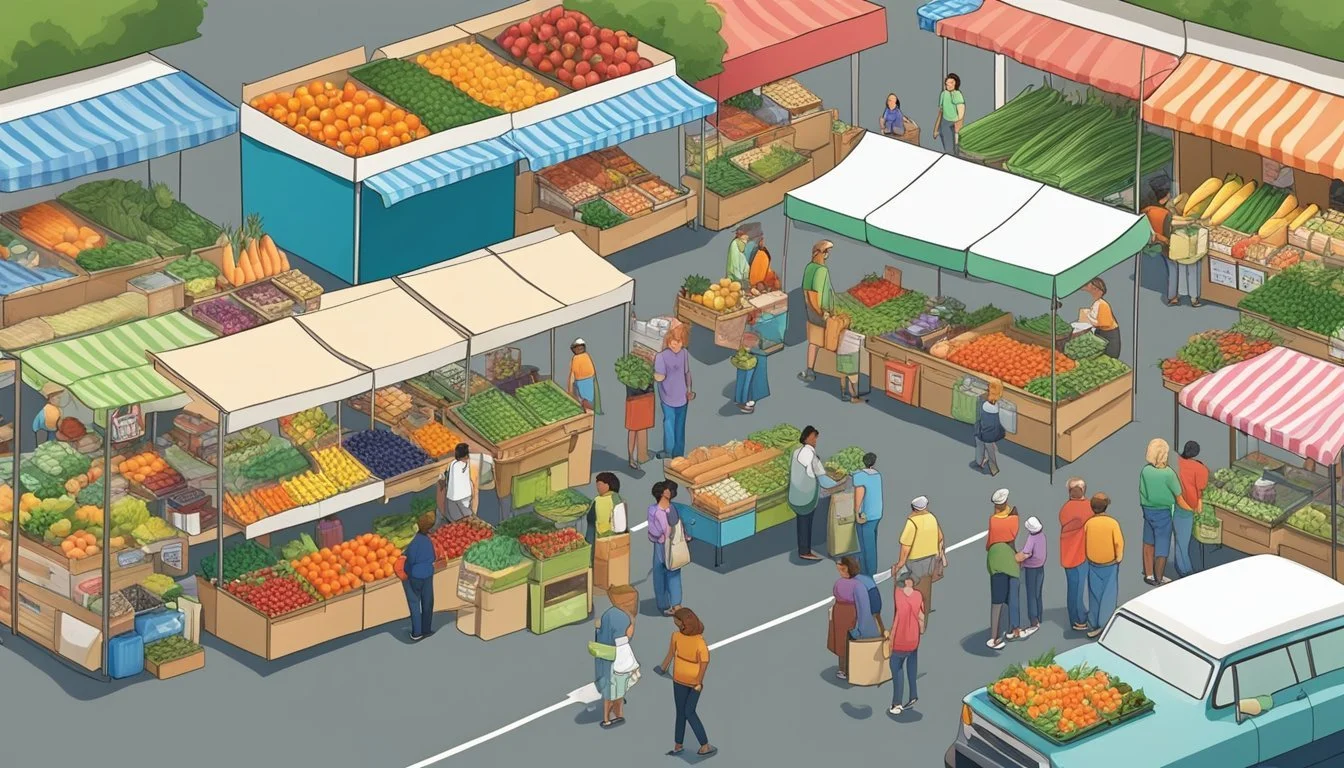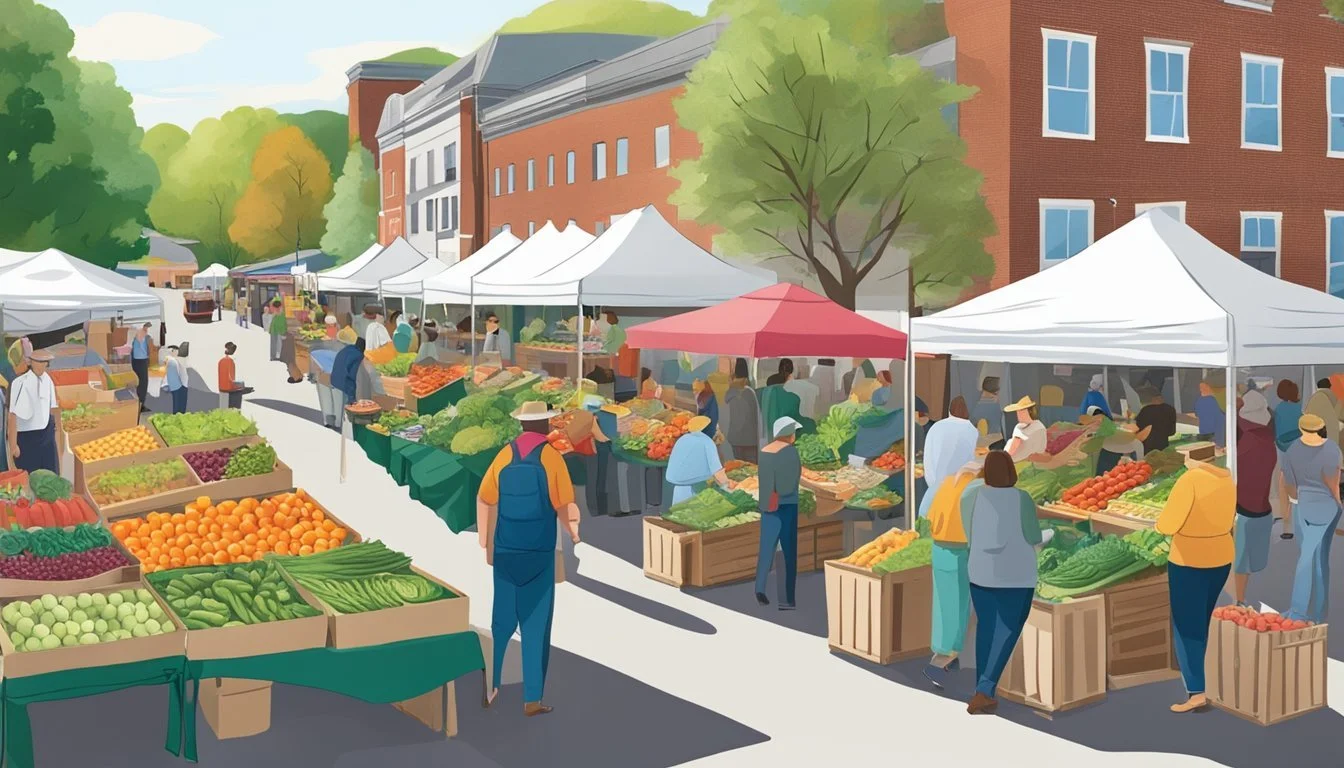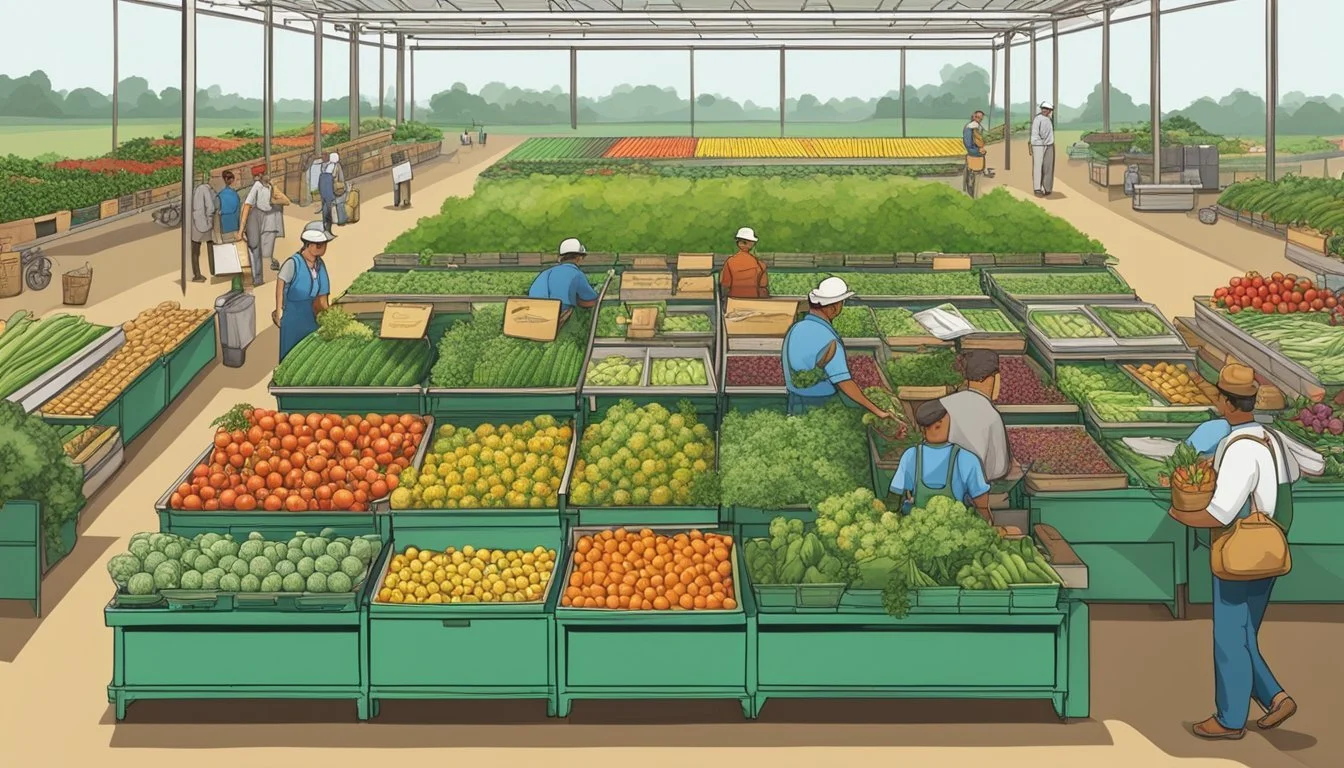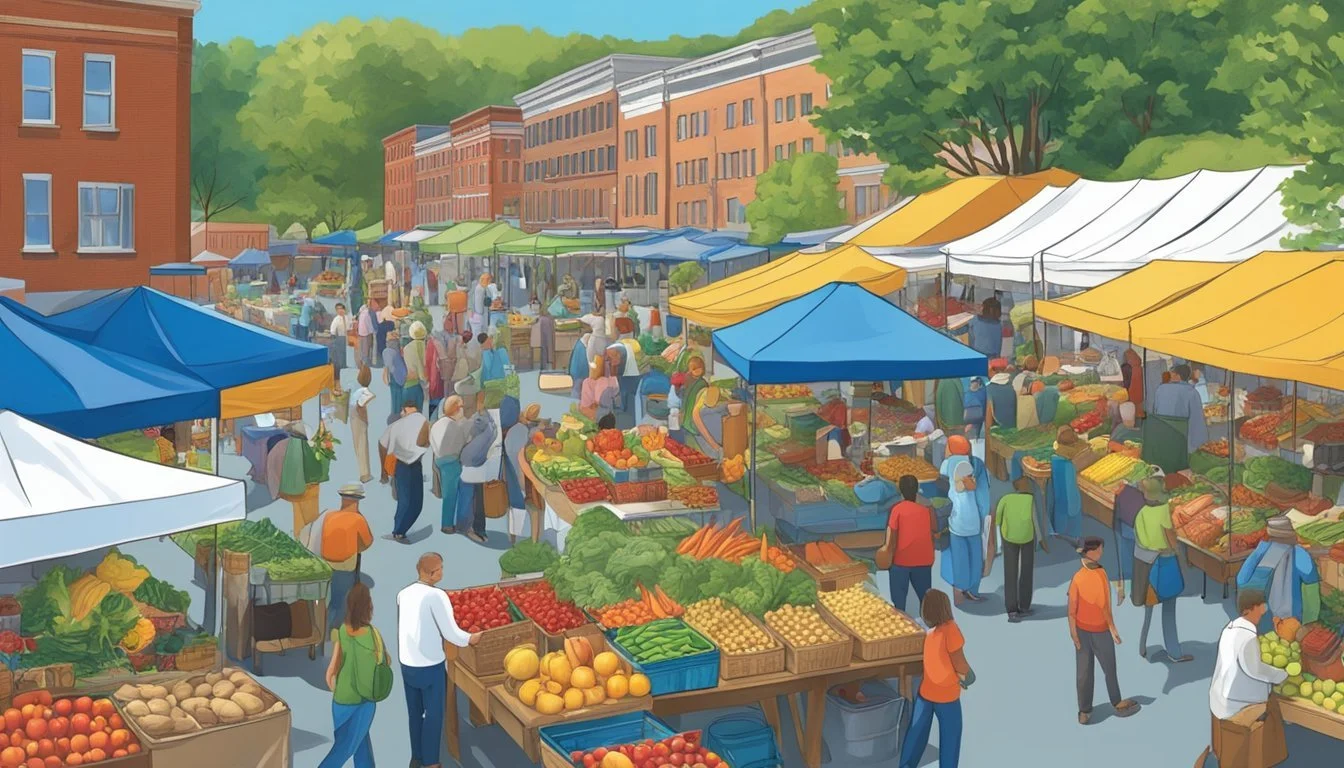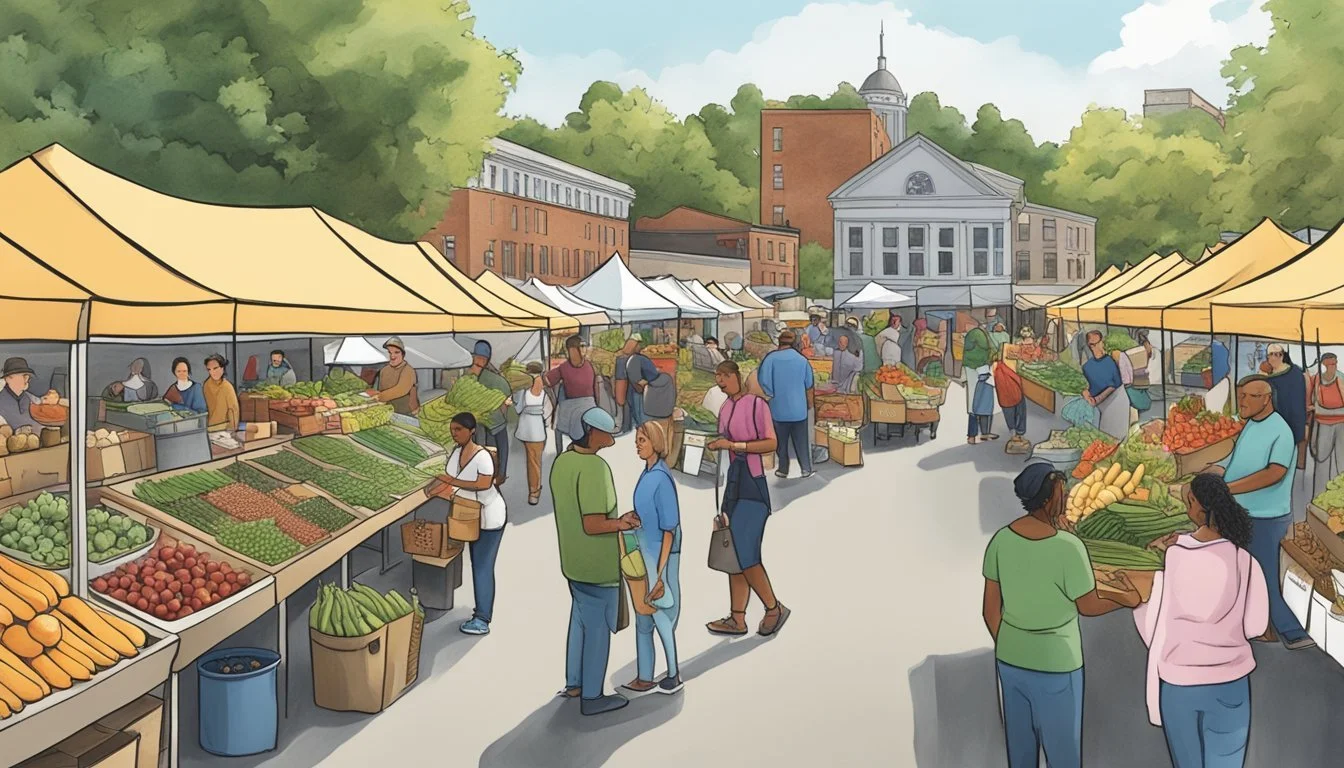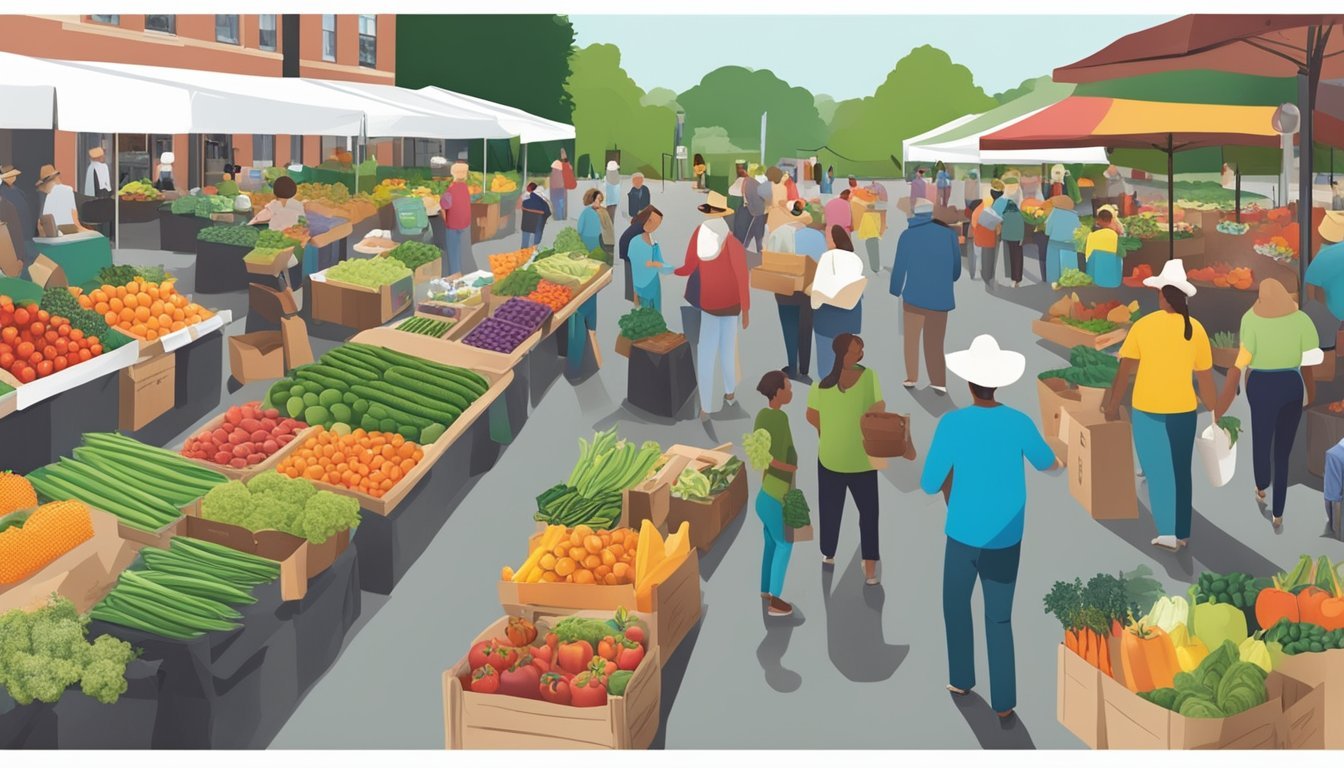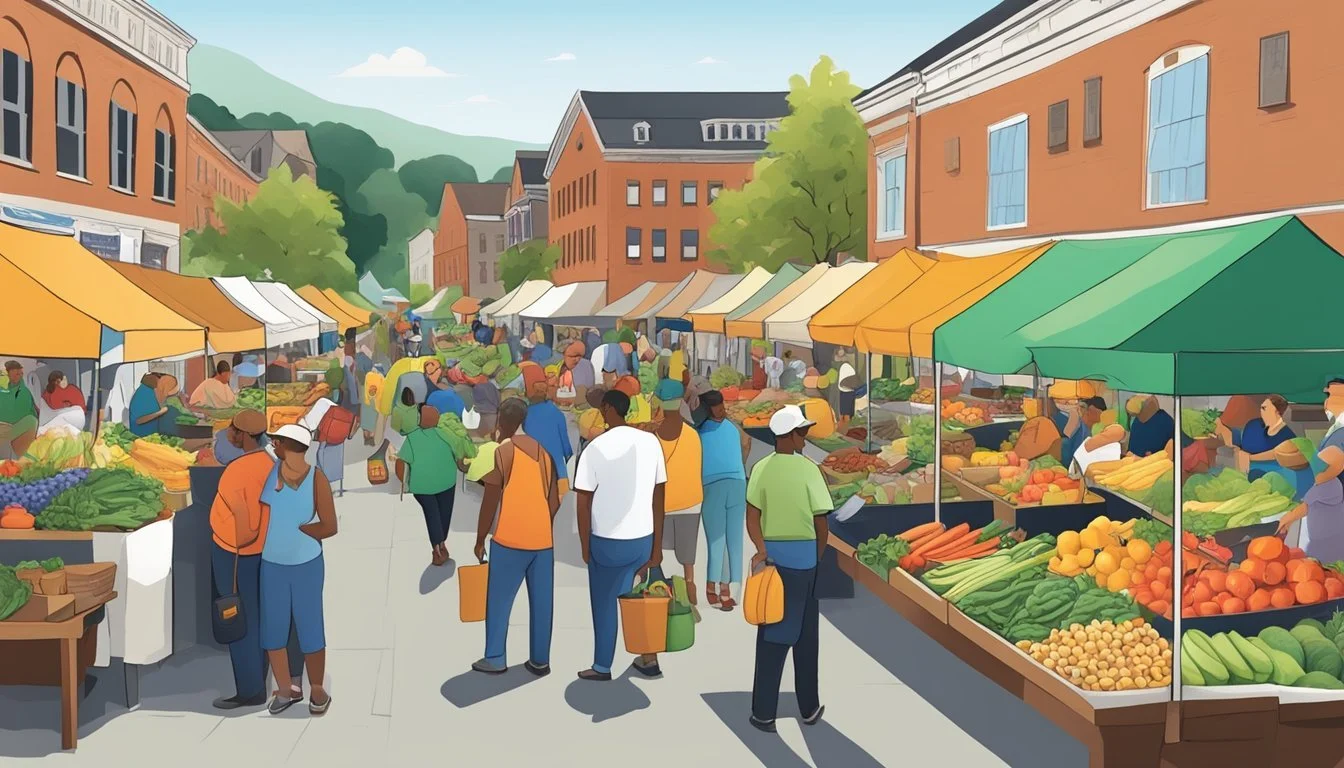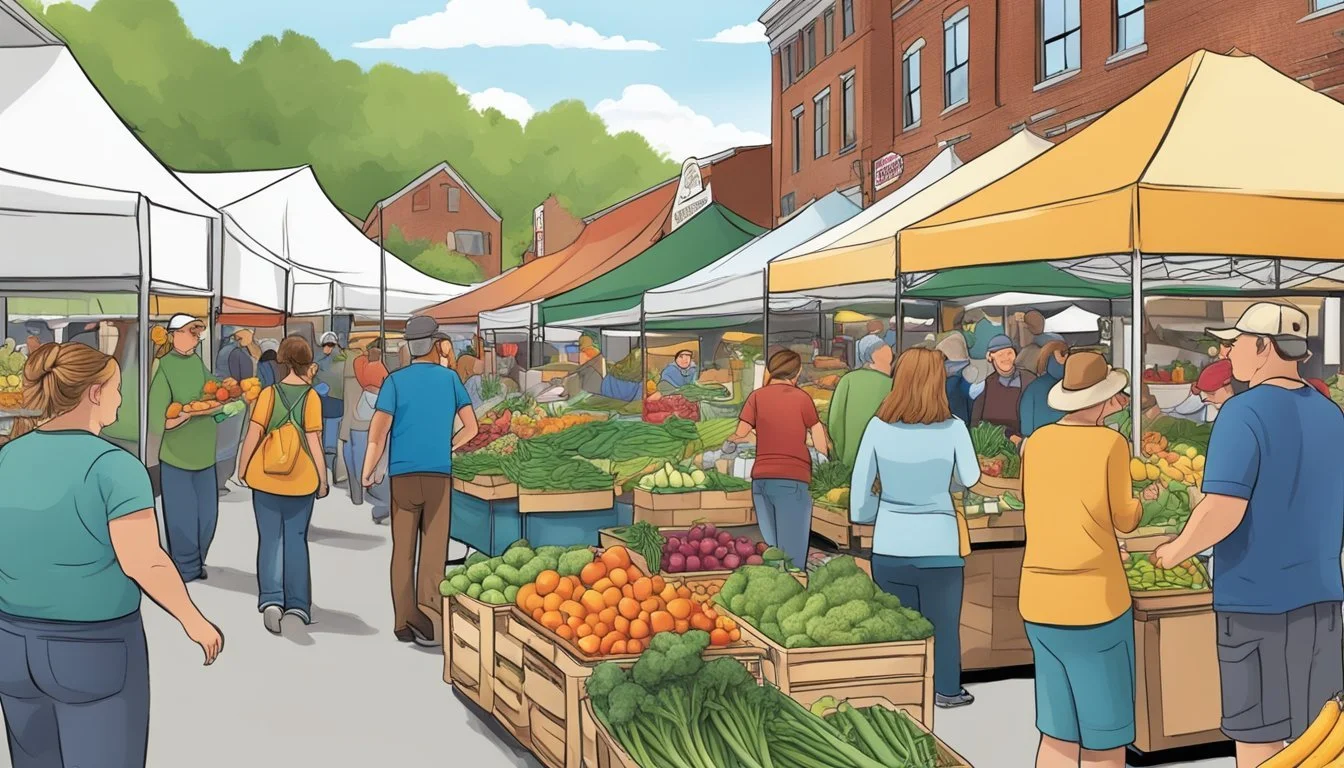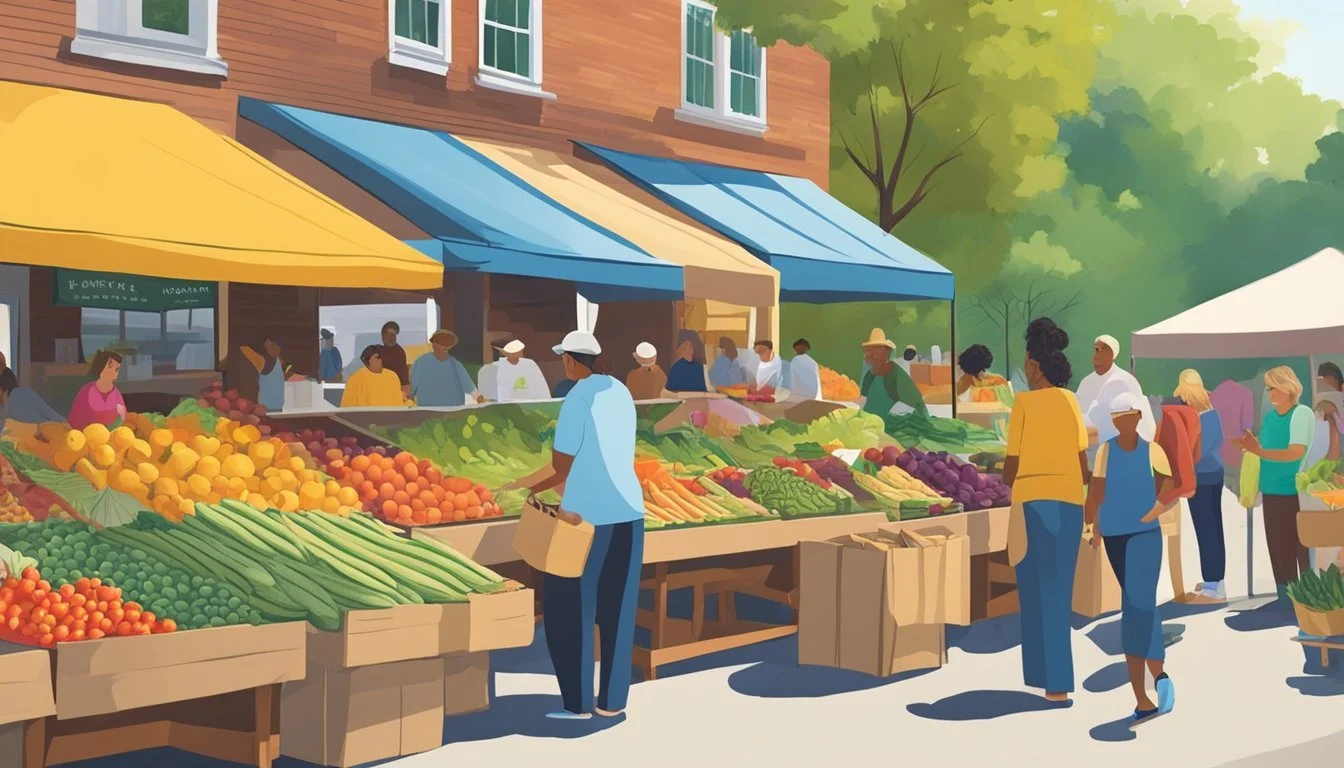Community Supported Agriculture (CSA) in Waterbury, CT
A Guide to Local Farm Shares
Community Supported Agriculture (CSA) is a model that has gained traction across the United States and is vibrant in Waterbury, Connecticut. The system is designed to foster a close relationship between consumers and their food sources. It allows consumers to subscribe to the harvest of a local farm, ensuring that they regularly receive a share of fresh, locally-grown or produced food items, such as vegetables, fruit, dairy products, and meats. By investing in a farm share, members benefit from the farmers' produce throughout the growing season, thereby promoting sustainable agriculture and supporting local economies.
In Waterbury, residents have the opportunity to join various CSAs, each offering a unique connection to the local agricultural community. This arrangement benefits both farmers and consumers—the former receives monetary support in advance, helping to plan and manage their operations, while the latter gets access to quality, seasonal produce that might otherwise be difficult to find. CSAs offer a simple way for individuals and families in Waterbury to contribute to environmental stewardship while reaping the health benefits of eating fresh, nutrient-rich foods.
Joining a CSA in Waterbury also comes with educational advantages; many farms encourage their members to visit and learn more about the farming process. This hands-on experience can prove invaluable, particularly for young families interested in teaching their children about food sourcing and healthy eating habits. The system has also demonstrated resilience, with some CSA farms adapting to community needs by offering customizations to share sizes and even providing delivery options to meet the needs of their members.
Understanding CSA
Community Supported Agriculture provides a direct partnership between local farmers and community members. Through a membership-based model, individuals support sustainable farming practices and receive a share of the harvest.
Foundations of CSA
Community Supported Agriculture (CSA) revolves around a subscription model where community members purchase shares of a farm's harvest in advance. This model is a commitment between local farmers and consumers, where risks and rewards of farming are shared. The foundation of CSA is built on the principles of supporting local farmers and fostering a sustainable food system.
Advance Payment: Consumers typically pay for the season upfront.
Shared Risk: Members share in the fluctuations of the farm's yield.
Benefits of Joining a CSA
Joining a CSA comes with multiple advantages for both the consumers and the farmers involved.
Access to Fresh Produce: Members receive fresh, seasonally available produce usually on a weekly basis.
Support for Local Agriculture: Membership fees provide farmers with reliable income to cover their production costs.
Environmentally Friendly: Sustainable farming practices are encouraged, reducing the carbon footprint associated with food transport.
Key benefits include:
Strengthening the Local Economy: By investing in a share, members help to sustain the local economy.
Learning About Food Sources: Members gain knowledge about where and how their food is grown.
Local farmers offer a variety of shares that might include vegetables, dairy products, meats, and more, providing a regular supply of fresh, locally-grown food to their community supporters.
CSA Structure in Waterbury
Community Supported Agriculture in Waterbury operates with a framework that allows residents to purchase memberships in exchange for seasonal produce directly from local farms. This partnership ensures fresh, organic produce availability and supports the local farm economy.
Membership Options
Membership options vary among CSA programs in Waterbury, typically offering full share, half share, or quarter share packages based on the quantity of produce a member receives. The cost of these shares reflects the portion of the harvest allocated for the entire season, which commonly extends from June to October.
Seasonal Availability and Shares
Spring: A period to sign up for CSAs with limited shares often available.
Summer CSA: Full operation with a weekly distribution of varied produce.
Winter: Some CSAs extend limited offerings or value-added products.
Shares usually indicate the size and frequency of produce deliveries:
Share Type Description Full Share Suitable for families, provides the most produce Half Share Ideal for smaller households or individuals Quarter Share A sampler, less quantity, more frequency
Farm Operations and Member Responsibilities
CSA members in Waterbury may be asked to participate in farm operations to some extent. This involvement ranges from helping with harvest season activities to attending social events at the farm. The farms operate on a mutual commitment where members support the local agricultural processes, and in turn, they receive fresh, locally-grown food throughout the June to October season. The labor provided by CSA members often fosters a sense of community and deepens the connection between consumers and their food sources.
Local Produce and Products
Community Supported Agriculture (CSA) in Waterbury, Connecticut, ensures that residents have direct access to a range of farm-fresh, locally grown produce and products. Subscribers to CSAs typically receive a portion of the season's harvest, which includes fresh fruits, vegetables, and a variety of other farm products, fostering a local food culture that prioritizes sustainability.
Typical CSA Offerings
CSAs in the Waterbury area often provide an abundance of fruits and vegetables, fresh from the local farms. Shareholders can expect a diverse array of seasonal items that can include:
Spring: Lettuces, spinach, radishes
Summer: Tomatoes, peppers, corn, cucumbers
Fall: Pumpkins, apples, root vegetables
Alongside produce, many CSAs offer products such as:
Dairy: Cheese, milk from local dairies
Proteins: Farm-fresh eggs, local meat options like beef or chicken
Specialty items like honey, maple syrup, and homemade jams
Organic and Sustainable Practices
The commitment to organic and sustainable farming practices is a cornerstone of many CSAs near Waterbury. Farms tend to favor methods that support soil health and avoid the use of synthetic fertilizers and pesticides. Local CSAs may emphasize:
Crop rotation and cover cropping to enrich the soil
Integrated pest management to reduce chemical use
Water conservation techniques
Utilization of renewable energy sources
By participating in CSAs, consumers not only enjoy fresh, local produce but also contribute to sustainable agricultural practices and the reduction of carbon footprint associated with long-distance food transportation.
Economic and Community Impact
Community Supported Agriculture (CSA) programs in Waterbury, Connecticut, significantly benefit both local agriculture and the community's economy. They establish a vital connection between residents and local farmers, bolster the regional economy, and provide consumers and producers with numerous economic advantages.
Supporting Local Agriculture
CSA initiatives create direct partnerships between local farmers and community members. By committing to purchase shares of a farm's harvest in advance, members ensure that farmers receive essential financial support throughout the growing season. This model gives farmers a reliable source of income and the ability to plan more efficiently for the production costs.
Dependable sales through CSAs reduce the financial risks for farmers.
Payment plans and SNAP/EBT acceptance can broaden the market and increase revenue.
Local businesses benefit from partnerships and possible discounts with CSAs, promoting an interconnected local economy.
Economic Benefits for Members and Farmers
Members of a CSA receive numerous economic benefits, including access to fresh produce at a lower price than retail outlets. By paying upfront, members typically enjoy discounts on the total cost of produce over the season compared to conventional purchasing methods.
Farmers gain upfront capital from memberships, stabilizing cash flow.
The local economy sees a boost as dollars circulate within the community and support local business.
Members can also access various produce without the intermediary costs of grocery stores, thus supporting their health and financial well-being.
Practical Information for CSA Members
Community Supported Agriculture (CSA) programs in Waterbury, CT, offer local consumers the opportunity to engage in a sustainable and supportive food system. By connecting directly with farmers, members can enjoy fresh produce while contributing to the viability of local farms.
Signing Up and Payments
One can sign up for a CSA share by contacting local farms directly or visiting their websites. Payment plans vary, but typically a member pays for the entire season's worth of produce upfront. This initial investment helps cover the farm's early-season operational costs. Some farms may offer installment plans to ease financial requirements.
Payment Options:
Full payment upfront
Installment plans
Pickup and Delivery Options
Upon signing up, CSA members receive details about their pickup locations or the availability of home delivery services. The convenience of pickup or delivery can vary by farm, but most aim to make distribution as accessible as possible.
Distribution Channels:
Pickup Locations: Designated areas, often at the farm or local markets.
Home Delivery: Might be available for an additional fee.
Using CSA Products Efficiently
Members receive an array of fresh produce throughout the CSA season. To maximize the benefits of the food supply, it's advisable to explore a variety of recipes that cater to the diverse produce offered. Many CSA programs also share tips on storage and preparation to help members use their full share.
Experiment with recipes provided by the CSA.
Store fresh produce properly to maintain quality.
Waterbury, CT's CSA programs are designed to provide fresh, local food while supporting community farmers through a model based on mutual trust and support. Members can take full advantage of their investment through timely signups, understanding their payment and delivery options, and utilizing their shares to the fullest.
Advocacy and Outreach
In Waterbury, CT, the advocacy and outreach efforts for Community Supported Agriculture (CSA) focus on fostering knowledge and building strong local connections. These initiatives aim to reinforce the Connecticut Grown philosophy by integrating educational components and forming partnerships with local businesses.
Education and Community Engagement
Community education lies at the heart of CSA advocacy in Waterbury. CSA programs frequently host workshops and events to disseminate information about sustainable agriculture and the benefits of locally grown produce. Schools and community centers serve as platforms for these outreach efforts, where farmers share expertise on how consumers can participate in CSAs. By engaging with the community, CSA programs enhance the public's awareness of Connecticut's agricultural richness and encourage participation in local food systems.
Opportunities Include:
Interactive workshops on sustainable farming practices
Educational talks at farmers markets and community centers
School programs to teach children about the farm-to-table concept
Partnerships with Local Businesses
CSA programs in Waterbury collaborate with local businesses to raise awareness and expand their reach. Such partnerships not only drive CSA memberships but also underscore the economic and social benefits of supporting Connecticut Grown initiatives. Local businesses, ranging from restaurants to independent grocery stores, provide a crucial communication channel to promote CSA shares and advocate for a resilient local food economy. These collaborations often result in businesses serving as pick-up locations for CSA shares or promoting seasonal produce in their offerings.
Examples of Partnerships:
Restaurants featuring locally sourced menu items
Grocery stores hosting CSA sign-up events
Local business sponsorships supporting community agricultural education efforts
Additional Resources
For those in Waterbury, CT interested in Community Supported Agriculture, comprehensive guides and seasonal events offer invaluable information to connect with local CSA programs and farms.
Local Food Directories and CSA Networks
Local food directories in Connecticut serve as resources for those seeking CSA shares in Waterbury and the surrounding areas. They provide detailed listings of participating farms by county, facilitating the search for consumers who prefer locally-sourced produce.
Connecticut Community Supported Agriculture Listing: A directory offering an array of CSA options throughout Connecticut, ensuring that residents can find a CSA program nearby, that is a suitable match for their needs.
LocalHarvest: Here, one can discover organic and sustainable farms like Maple View Farm in Harwinton, with available pickup days catering to the convenience of CSA members.
Events and Seasonal Activities
CSA-related events and seasonal activities in Connecticut aim to engage the community and enhance awareness of local agriculture. They are perfect avenues for meeting farmers, learning about sustainable practices, and signing up for CSA shares.
CT NOFA's Farm Share Program: Supports individuals in need of financial assistance to access local CSA shares while ensuring farmers receive fair compensation.
Farmers’ Markets: Events across the state often include participating CSA farms, offering opportunities to learn more about CSA programs firsthand and to subscribe to seasonal harvests.
Utilizing these resources, residents in Waterbury can confidently connect with their local food system and support Connecticut's agriculture community through CSA programs.
Regulations and Compliance
In Waterbury, Connecticut, Community Supported Agriculture (CSA) operations must adhere to state regulations ensuring food safety and compliance. Both consumers and producers are affected by these guidelines, which are in place to maintain a high standard of food quality and to manage CSA-related activities within the legal framework of Connecticut.
Food Safety and Handling
Connecticut takes food safety seriously, and CSA programs are no exception. Producers must follow strict guidelines for the handling and distribution of produce to prevent contamination and ensure consumer health:
Proper washing and handling: All CSA produce must be washed and handled according to the Connecticut Department of Agriculture’s standards.
Temperature control: Foods requiring refrigeration must be stored and transported at appropriate temperatures.
Training: Individuals involved in food handling must receive adequate training on food safety practices.
Local health departments conduct inspections and have the authority to enforce food safety regulations.
Regulatory Framework in Connecticut
The regulatory framework within Connecticut establishes clear rules for the operation of CSAs, incorporating aspects such as taxation, use of fertilizers, and overall compliance:
Taxation: CSA shares are subject to Connecticut sales tax, unless the produce is sold for resale or is exempt under state law.
Fertilizers and Chemicals: The state regulates the use of fertilizers and pesticides, with specific compliance guidelines provided by the Connecticut Department of Energy and Environmental Protection.
Voluntary compliance: CSA operators in Connecticut can adhere to voluntary statements of compliance concerning agricultural practices, which can enhance consumer trust.
It's important for CSA participants to stay informed about state laws and regulations to ensure their operations are fully compliant.
Innovation and Future Developments
Community Supported Agriculture (CSA) in Waterbury, CT, is undergoing significant changes thanks to advancements in technology and evolving business models. These developments aim to enhance the efficiency and sustainability of CSAs, providing tangible benefits to both producers and consumers.
Technology and Data in CSA
Advancements in technology are playing a crucial role in the transformation of CSAs. Farmers are beginning to leverage Application Programming Interfaces (APIs) to streamline distribution processes. These APIs facilitate better data management and customer interaction, allowing for:
Real-time updates on harvest availability and pickup schedules.
Enhanced customer personalization, customizing share contents according to individual preferences.
Integration of data analytics tools is aiding farmers in predicting crop yields with higher accuracy, leading to improved planning and reduced waste. Moreover, CSA members enjoy the transparency and engagement that technology provides, reinforcing the community bond intrinsic to the CSA model.
Emerging Trends in CSA Models
In Waterbury's CSA scene, innovative business models are emerging that shift the traditional CSA framework. A notable trend is the multi-farm cooperatives, which increase variety and share reliability for consumers. Other CSAs are exploring:
Subscription-based models with flexible terms.
Pop-up CSA distributions, reducing barriers for consumer access.
Partnerships for cross-promotional offerings, such as pairing produce with local artisan goods.
These models are being shaped by both consumer demand for convenience and sustainability and by the recognition of the vital role CSAs play in the local food system. As a result, Waterbury's CSA programs are becoming more adaptable and resilient, with innovation at the forefront of their evolution.
Conclusion
In Waterbury, CT, the embrace of Community Supported Agriculture (CSA) reflects a growing trend toward sustainable food practices. With CSAs, members of the community have established a symbiotic relationship with local farms, securing a future for agriculture that is both ecologically and economically sound.
Financially, the upfront investment by consumers in CSA shares provides stability for farmers, allowing them to plan and manage their crops with certainty.
Environmentally, this model promotes less waste and a reduction in the carbon footprint associated with long-distance transportation of produce.
The value of CSAs in Waterbury extends beyond fresh produce; it strengthens community ties and fosters an appreciation for seasonal eating. Consumers become partners with farmers, and through this partnership, they invest not just in food, but in the cultivation of community resilience.
By supporting local CSAs, Waterbury residents partake in a larger movement:
Community: Reinforcing the local economy and fostering relationships between farmers and consumers.
Sustainable: Contributing to responsible farming practices that prioritize the health of the land.
The inclusion of CSAs in Waterbury represents a commitment to a healthier, more connected society. With every share purchased, residents are taking active steps towards a more sustainable community, laying the groundwork for persistent agricultural prosperity.

